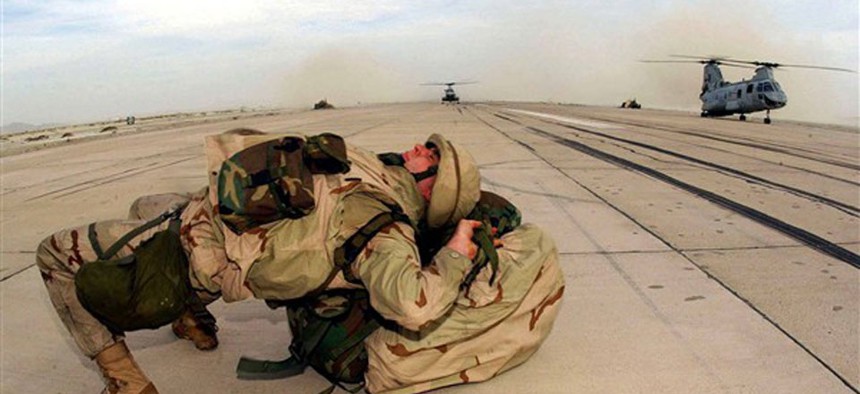Scientists Figure Out Why Grunts Groan

Deployed from USS Bataan and arriving in Afghanistan with a heavy backpack, a Marine with the 26th Marine Expeditionary Unit (Special Operations Capable), dons his backpack by laying his back on it. U.S. Navy
It’s the ever-increasing load, researchers at the International Congress on Soldiers' Physical Performance conclude.
Some 325 scientists from around the world attending the third International Congress on Soldiers' Physical Performance in Boston came to the obvious conclusion any infantryman knows all too well: The combat load is way too heavy and defies efforts to shrink it.
Marilyn Sharp, who has the title of research exercise scientist -- really -- at the U.S. Army Research Institute of Environmental Medicine in Natick, Massachusetts, told the conference the “soldier load has been a problem for decades. And every time we lighten soldiers' load, we add another piece of equipment to make it worse."
Despite a recent 20-year effort to lighten it, soldier load has steadily increased since the Civil War -- and this has led to injuries, Sharp added.
"The amount of load that you carry both in absolute terms and relative to your body weight is going to increase your injuries while you're deployed," Sharp said. "So I believe it's a very big problem that we need to continue to work to solve."
My take? Anyone who comes up with a great idea for a new piece of gear for a grunt to carry should first have to hike all 2,181 miles of the Appalachian Trail with it and all the other gear that already burdens an infantryman.






